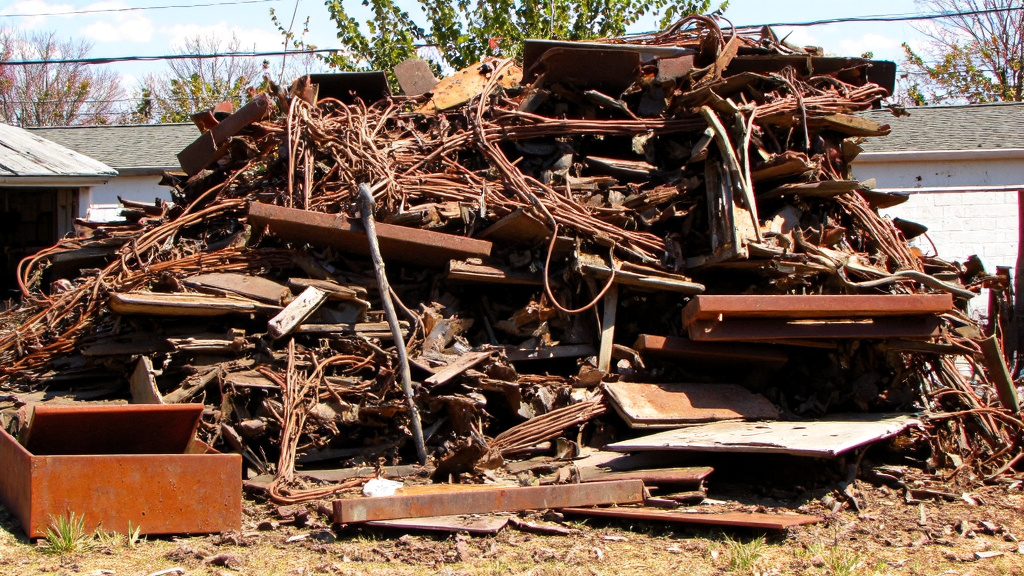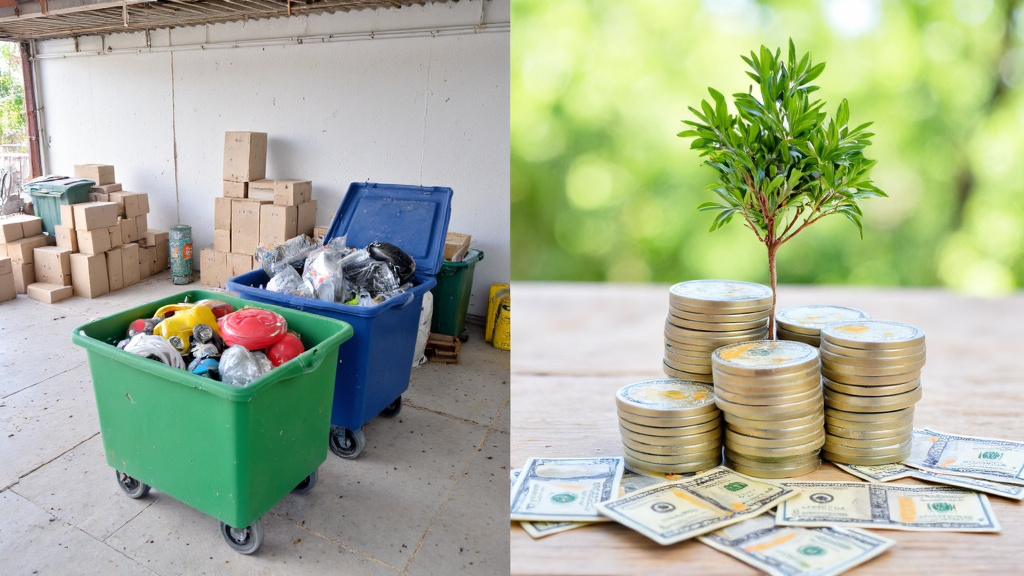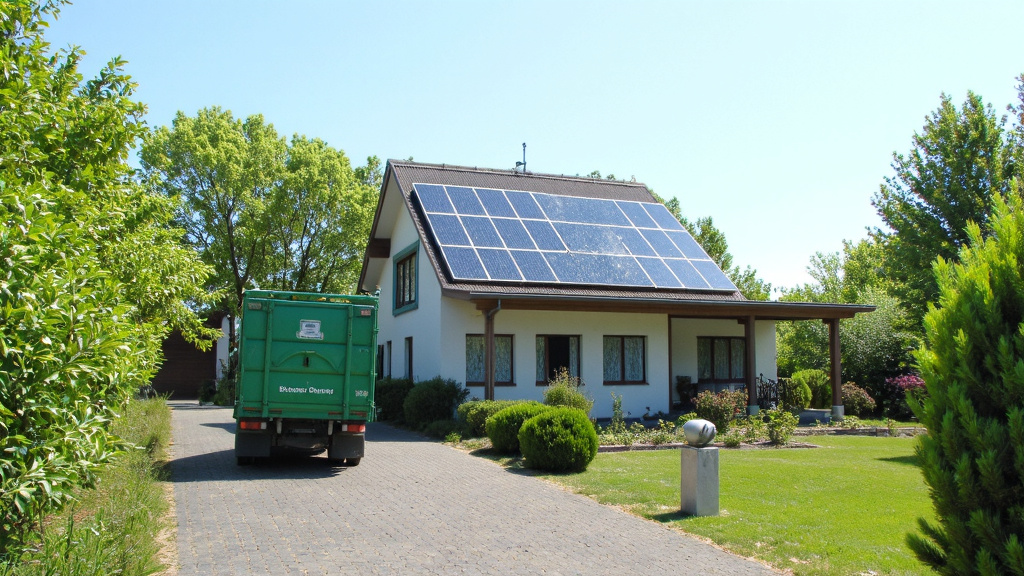5901 Botham Jean Blvd, Dallas, TX 75215
The Importance of Recycling Metal Waste from Residential Construction
April 29, 2025Every nail, wire, and metal fixture from residential construction sites represents an opportunity for environmental stewardship. Metal recycling is one of the most impactful sustainability practices in modern construction. The construction industry, traditionally resource-intensive, now faces mounting pressure to adopt greener approaches.
Recycling metal waste from residential projects creates a ripple effect of benefits across the environmental spectrum. Materials like aluminum siding, copper wiring, and steel beams contain valuable resources that can be repurposed without sacrificing quality. Recycling them requires up to 80% less energy than producing new metals from raw ore.
Beyond environmental advantages, metal recycling transforms costly waste into a potential revenue stream. Construction companies that implement effective metal recycling programs often discover significant cost savings through reduced disposal fees and potential returns from scrap metal sales. This financial incentive aligns perfectly with growing market demands for sustainable building practices.
What are the common types of metal waste in residential construction?

Residential construction projects generate significant amounts of metal waste throughout their lifecycle. These materials are valuable recyclable resources rather than mere disposal challenges. Understanding the various metal waste streams helps construction professionals implement effective recycling practices while potentially creating additional revenue.
Steel and iron components constitute the largest category of metal waste in residential projects. This includes structural steel beams, rebar used in foundations, metal studs for framing, and various fasteners such as nails, screws, and metal strapping. These ferrous materials are readily recyclable and form the backbone of many metal recovery programs.
Copper represents another significant waste stream with considerable value. Electrical wiring is the most common source, especially during demolition or renovation projects. Plumbing systems contribute copper piping and fixtures, while HVAC installations may include copper tubing and components. The high scrap value of copper makes it particularly worthwhile to segregate and recycle.
Aluminum components appear frequently in modern residential construction. Common sources include siding panels, window frames, gutters, and downspouts. Many roofing systems also incorporate aluminum elements. This lightweight metal remains in high demand for recycling due to the significant energy savings compared to producing virgin aluminum.
Sheet metal waste emerges from HVAC installations, including ductwork, vents, and equipment housing. These galvanized steel components typically contain zinc coatings that require special handling during recycling but remain fully recoverable. Ductwork often generates substantial scrap during installation as pieces are cut to fit specific dimensions.
Metal roofing generates waste during both installation and replacement phases. Materials may include steel panels, aluminum sheets, copper flashing, and zinc strips. Offcuts during installation and complete panels during renovations create recyclable waste streams that contractors should properly segregate.
Plumbing fixtures and components contribute brass, bronze, and mixed metal waste. Faucets, valves, pipe fittings, and decorative elements contain various alloys with recycling value. These smaller components can be overlooked in waste management plans despite their cumulative impact and potential value.
Appliances and mechanical systems removed during renovations contain valuable metals including steel casings, copper wiring, aluminum components, and sometimes precious metals in electronic parts. These complex items require proper dismantling to maximize recycling potential.
Value maximization through proper segregation
The recycling value of metal waste varies significantly based on metal type, purity, and market conditions. Copper and aluminum generally command higher prices than steel, making separate collection economically advantageous. Contractors who implement sorting systems directly on construction sites can capture more value compared to commingled disposal approaches.
Contamination represents a key challenge in metal recycling. Paint, insulation, plastic coatings, and other non-metallic materials can reduce recyclability and value. Construction teams should train workers to identify and properly handle different metal types while minimizing cross-contamination.
Storage solutions at construction sites facilitate proper metal waste management. Dedicated containers for different metal types prevent mixing while protecting materials from weather exposure. Regular collection schedules prevent overflow issues while maintaining site safety and organization.
Many regions have specific regulations governing metal waste disposal from construction sites. These may mandate recycling quotas or prohibit landfill disposal of certain materials. Compliance with these requirements helps avoid penalties while supporting sustainability objectives through proper resource recovery.
Partnerships with specialized metal recyclers often yield better financial returns than general waste haulers. These specialists have the equipment and expertise to properly process different metal types while offering competitive pricing. Some recyclers even provide container services specifically designed for construction site metal collection.
| Metal Type | Common Sources | Recycling Considerations |
|---|---|---|
| Steel | Structural beams, rebar, metal studs | Readily recyclable, forms backbone of recovery programs |
| Copper | Electrical wiring, plumbing systems, HVAC components | High scrap value, important to segregate |
| Aluminum | Siding panels, window frames, gutters | Significant energy savings when recycled |
| Sheet Metal | HVAC ductwork and vents | Galvanized steel requires special handling |
| Brass/Bronze | Plumbing fixtures, decorative elements | Valuable alloys, should be properly segregated |
| Appliances | Steel casings, copper wiring, aluminum components | Require dismantling for maximum recycling potential |
What are the best practices for recycling metal waste on construction sites?
Metal recycling on construction sites offers environmental benefits and potential revenue. Implementing proper strategies ensures you maximize the value of scrap metal while reducing waste. Below are key practices that can transform your construction site’s approach to metal waste management.
Sorting Metals
Separating different metal types at the source is crucial for effective recycling. Sort ferrous metals like steel from non-ferrous materials such as copper and aluminum. This step increases the value of your scrap and simplifies the recycling process downstream. Provide clearly labeled containers for each metal type to make sorting straightforward for workers.
Set up Recycing Zones
Setting up designated recycling zones on your construction site prevents metal waste from mixing with general debris. These areas should be easily accessible but not interfere with daily operations. Consider using roll-off dumpsters specifically for metal collection, which makes transportation to recycling facilities more efficient and prevents potential safety hazards from metal accumulation.
Train Your Team
Worker education forms the backbone of any successful metal recycling program. Train your team to identify different metal types and understand proper sorting techniques. Regular training sessions help reinforce these practices and address any questions or challenges that arise. When workers understand the environmental and economic benefits of proper metal recycling, compliance typically improves.
Partner with a Metal Recycling Company
Partnering with reputable metal recycling companies ensures your materials are processed responsibly. These specialists can provide containers, pick-up services, and competitive rates for your scrap metal. Look for recyclers with proper environmental certifications and transparent pricing structures. A strong partnership with a reliable recycler simplifies the entire waste management process.
Implement a Waste Management Plan
Implementing a comprehensive waste management plan helps track and optimize your metal recycling efforts. This plan should include goals for recycling rates, procedures for sorting and collection, and methods for monitoring progress. Regular assessments allow you to identify areas for improvement and adjust strategies as needed.
Track the Process
Monitoring and documentation provide valuable insights into your recycling program’s effectiveness. Track the quantity and types of metals recycled, along with any revenue generated. This data helps demonstrate the financial benefits of recycling and supports compliance with environmental regulations. Simple tracking systems can help construction managers make informed decisions about waste management practices.
Routine Checks
Regular site inspections ensure compliance with your metal recycling protocols. Schedule routine checks to verify that sorting practices are being followed and that recycling areas are properly maintained. Address any issues promptly to prevent them from becoming established bad habits. These inspections also provide opportunities to recognize and reward good recycling practices.
Providing incentives for proper recycling can significantly boost participation. Consider sharing a portion of scrap metal revenue with workers or recognizing teams with exceptional recycling practices. These positive reinforcements help establish a culture of sustainability on your construction site.
By implementing these practices, construction managers can create effective metal recycling systems that benefit both their projects and the environment. The combination of proper sorting, worker education, and strategic partnerships forms the foundation for successful metal waste management.
| Metal | Environmental Benefits | Recycling Energy Savings |
|---|---|---|
| Aluminum | Infinite recyclability, reduces transportation emissions | 95% less energy than producing from raw materials |
| Copper | Reduces mining demand, high recycling rates | 85% less energy than extracting from virgin ore |
| Steel | Preserves natural resources, reduces landfill waste | Significant energy savings compared to new steel production |
What are the benefits of recycling metal waste for construction companies?

Recycling metal waste generates direct revenue through scrap metal sales. Construction companies can sell materials like steel, aluminum, and copper to local scrap yards, creating an additional income stream from what would otherwise be disposal expenses.
Cost reduction is another significant advantage. When construction businesses recycle, they substantially lower their waste disposal and transportation costs. Many recycling facilities charge less for processing recyclable materials compared to standard waste disposal fees.
The financial benefits extend beyond immediate revenue. By reusing recycled materials in new projects, companies reduce their need to purchase raw materials, leading to lower overall project costs and improved profit margins.
Regulatory Compliance and Risk Management
Construction waste management regulations are becoming more stringent nationwide. By establishing proper metal recycling practices, companies ensure compliance with local and state requirements, helping avoid costly penalties and potential project delays.
Many construction projects now include sustainability requirements, especially for government contracts or LEED-certified buildings. A robust metal recycling program helps companies meet these specifications, positioning businesses favorably for competitive bids on eco-conscious projects.
Regulatory compliance also reduces long-term liability risks. Proper documentation of waste management practices provides protection against future claims related to improper disposal, creating both financial security and operational peace of mind.
Competitive Advantage and Brand Enhancement
In today’s environmentally conscious marketplace, sustainable practices significantly impact company reputation. Customers increasingly prefer to work with businesses that demonstrate environmental responsibility. Metal recycling programs offer tangible evidence of this commitment.
Construction companies that prioritize recycling gain a competitive edge over those still relying on traditional disposal methods. This differentiation can be especially valuable in markets where environmental concerns drive purchasing decisions. Companies can highlight their recycling programs in marketing materials and project bids.
The benefits extend to employee recruitment and retention as well. Today’s workforce values employers who demonstrate environmental responsibility. A comprehensive recycling program helps attract and keep talented professionals who want to work for companies aligned with their values.
Conclusion: Embracing metal recycling for sustainable residential construction

Metal recycling is essential for sustainable residential construction. Using recycled metals significantly reduces environmental impact by conserving natural resources and minimizing landfill waste. Construction companies that prioritize metal recycling help reduce carbon footprints while also benefiting from cost savings and regulatory compliance.
The construction industry is at a crucial point in resource management and environmental responsibility. As sustainability gains importance, metal recycling will play a key role in the future of residential construction.
For comprehensive metal recycling solutions that support your sustainable construction goals, contact Okon Recycling at 214-717-4083.
